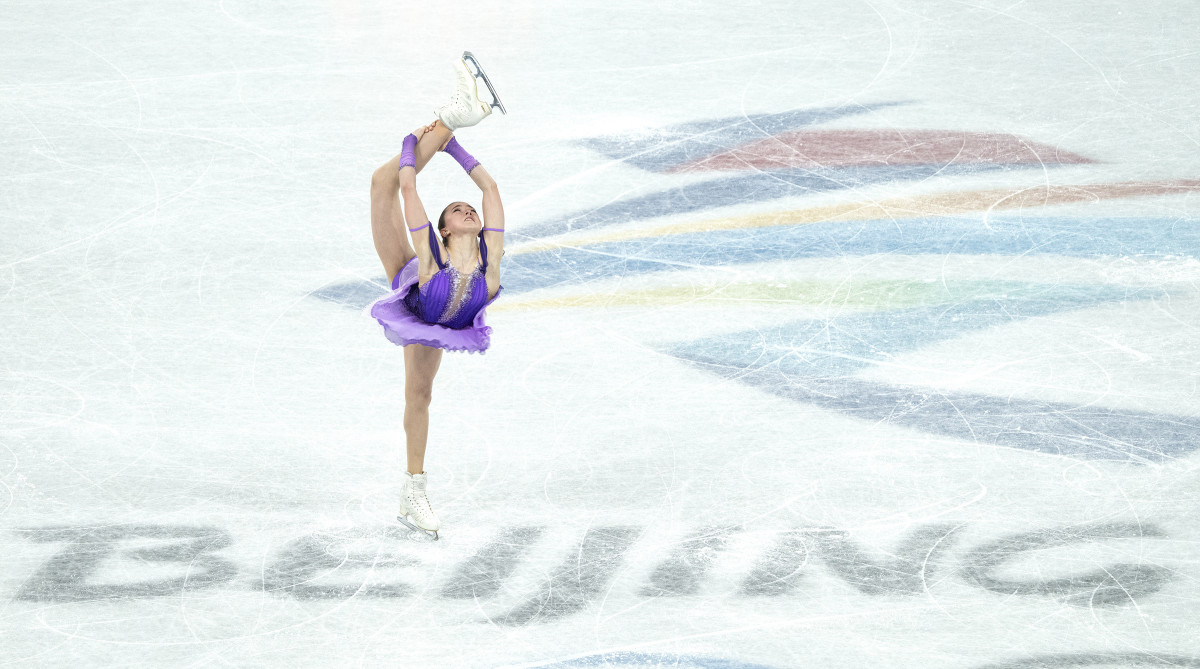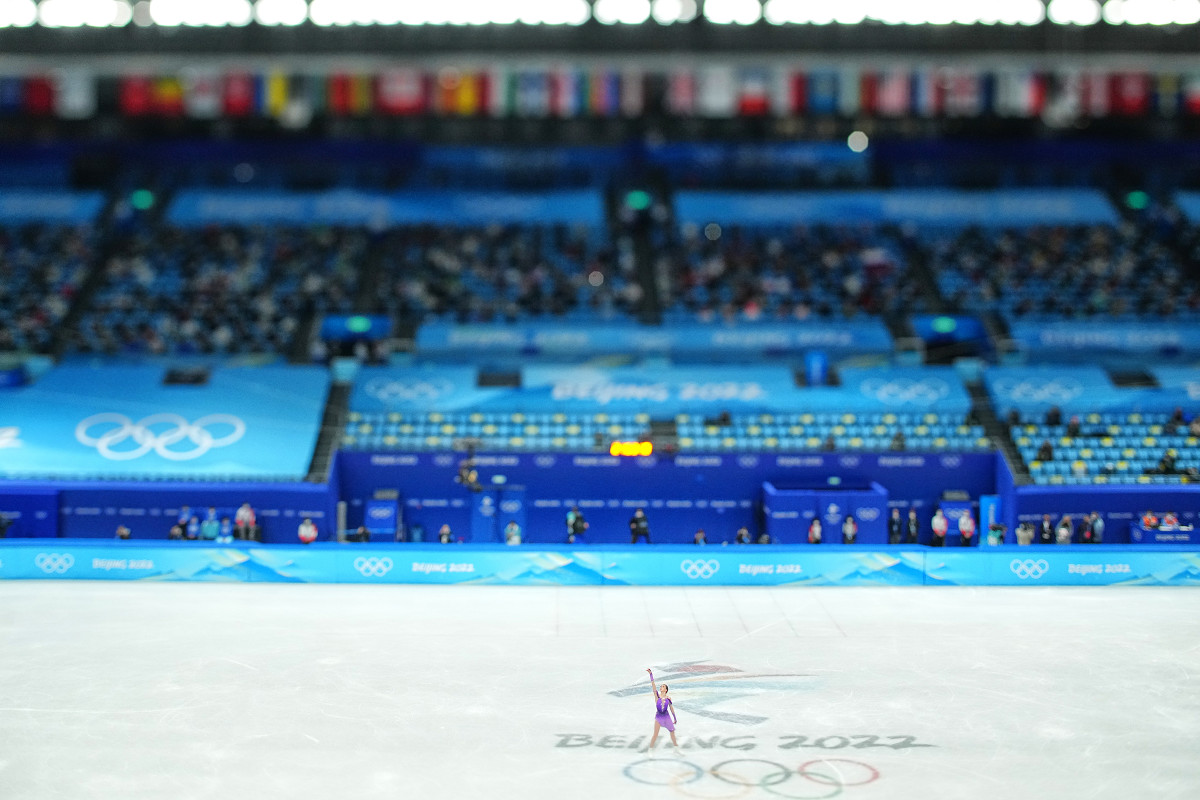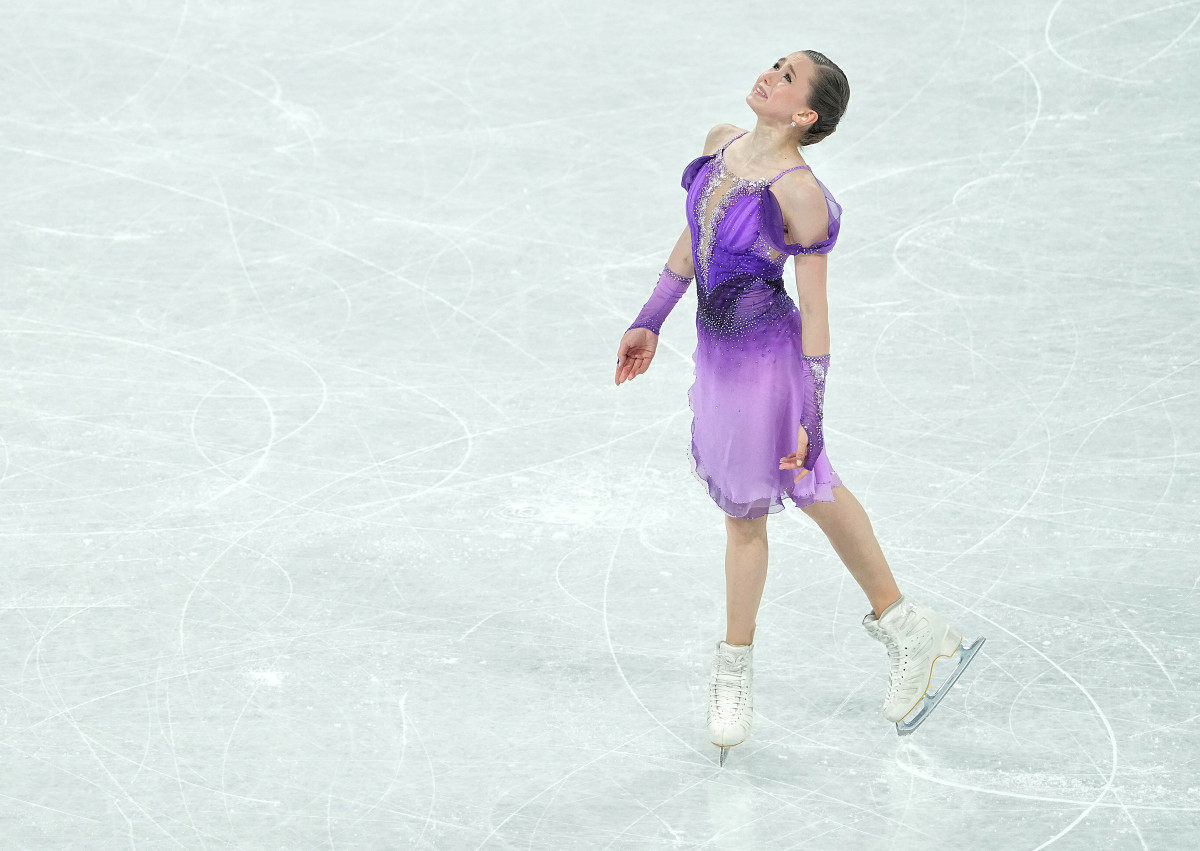Women’s Figure Skating Marred by Kamila Valieva’s Controversial Return to the Ice

BEIJING — Representing a country that technically isn’t here, after a performance she shouldn’t have been allowed to give, on her way to a medal she can’t receive, 15-year-old Russian star Kamila Valieva walked past reporters at Capital Indoor Stadium, avoiding questions she couldn't answer. She had skated beautifully, but that isn’t the point. Welcome to the most elegant sham in Olympics history. Only the victims are real.
Valieva’s short program was not perfect, as she nearly fell on her opening jump, a triple axel. But she is in the lead entering Thursday’s free skate, and what is usually a marquee event at any Winter Olympics will now be beyond awkward. Valieva tested positive for trimetazidine, a banned heart medication, and she should not be allowed to compete, but an asinine ruling by the Court for Arbitration in Sport (CAS) means she is eligible. The IOC has decided not to award any medals if Valieva gets one, while it continues to investigate.

There have been plenty of fraudulent performances in Olympic history. The difference here is that this was fraudulent before it happened. Valieva’s lawyers say that the skater failed the test because of contamination from medication her grandfather was taking. I don’t know how many people in this arena believed that, but let’s set the over/under at one—and I’ll take the under.
“I wish it would be a level playing field, [but] it’s not,” Great Britain’s Natasha McKay said. “That’s the decision that they made.”
American Karen Chen, who earned a silver in the team event but won’t receive it here, said, “I was just notified that we are not getting our medals for sure. And I did not know that at all. It's definitely disappointing. I was really looking forward to being on the podium with my amazing teammates. … I would love, even if we don't get our medals, just to stand on the podium.”
American Mariah Bell said, “It's not my business. Obviously, I feel sad for my teammates. It seems wrong to punish people who have done things the right way.”

It is important to recognize that, with a level playing field, McKay and Bell probably still would not win medals. So they don’t feel personally cheated. Bell even said she feels sympathy for Valieva, and she should. Valieva is 15. She stumbled a bit in her short program, but she is so gifted that she still received a score of 82.16, almost two points clear of second-place Anna Shcherbakova. It is quite possible that she didn’t know she was taking drugs, and also that she doesn’t need them. But a series of colossal missteps has opened the door for Russia to cheat, saving Russia the hassle—or perhaps pleasure—of picking the lock.
Russia was supposed to be banned from the Olympics, but it really isn’t. Valieva tested positive but is a “protected person” because she is only 15.
We don’t really know what happened with Valieva—and perhaps we never will. If you think Russian officials and coaches gave her drugs, well, you have good reason to suspect that. After all, Russia got caught orchestrating a massive doping program. And if you think Valieva really did ingest her grandfather’s heart medication by accident … well … I mean, on the one hand, trimetazidine is hardly the drug that would be most likely to enhance a skater’s performance, and people make mistakes… but on the other hand: Who accidentally takes their grandfather’s medication two months before competing in the Olympics? You would have to be completely oblivious to the entire concept of drug testing to do that.
“For those of us who take that seriously, it's terrifying when you're tested because you don't want to miss,” Bell said. “I'm like, ‘Shoot, I took Tylenol PM. Like, is that O.K.?’ When the integrity of sport is top of mind, it's something that you're concerned about.”

Ultimately, of course, how the drugs got into Valieva’s system should not matter. There is a list of banned drugs. Athletes can’t take them. That’s what banned means. It’s a very simple concept. Once you start creating loopholes, the whole system falls apart.
The system is in pieces now. And so is this event. Skaters had varying answers to how much this has affected them—if the controversy affected anybody, it should be Valieva, and she skated her way to first place. But the event should be about the skaters, and instead it’s about doping.
Watch the Winter Olympics with fuboTV: Start with a 7-day free trial!
As a video screen showed Valieva’s skate, American Alysa Liu was forced to answer (fair) questions about the situation. Liu is just 16. Like other skaters, she did not want to rip the 15-year-old. But like other skaters, she can see the whole thing “sucks.”
“I just don't know enough details to have a solid opinion on it,” Liu said. “But obviously, pushing that aside, doping athletes competing against clean athletes obviously isn’t fair.”
Liu is eighth entering Thursday’s free skate. Three of the skaters ahead of her are Russian. At the top is Valieva. The IOC and CAS deserve the embarrassment of a Valieva win. But the rest of the skaters here deserve so much better.
More Olympics Coverage
• First Responders Seeking First Place in Beijing
• Team USA’s Erin Jackson Wins Historic Gold Medal in Speedskating
• Madison Hubbell and Zachary Donohue Stick Together on the Ice to Win Bronze
Sports Illustrated may receive compensation for some links to products and services on this website.
